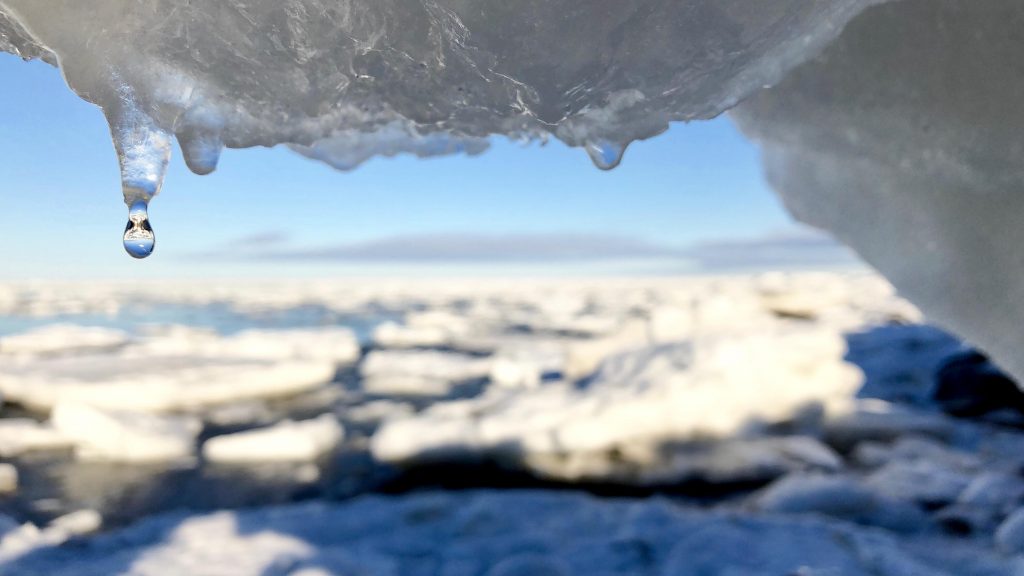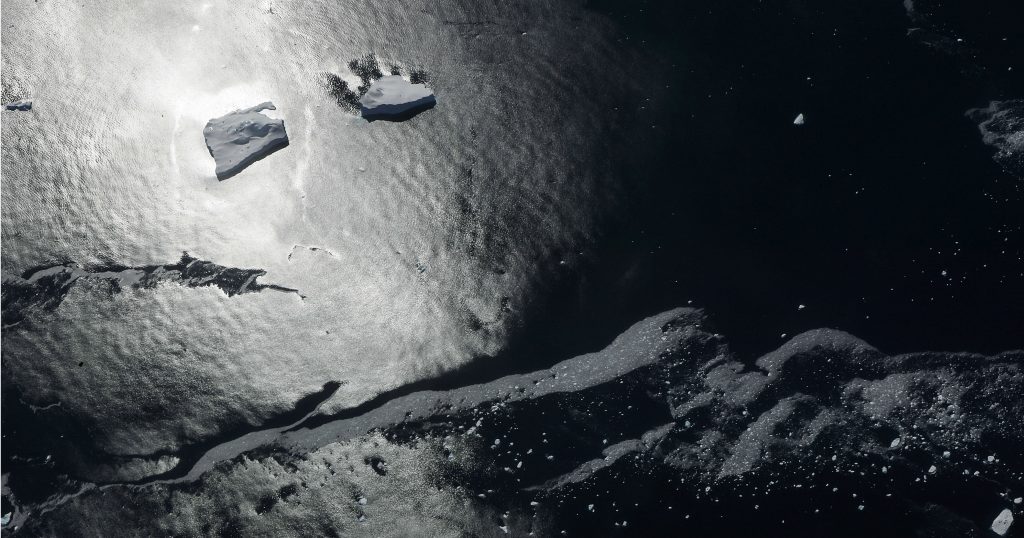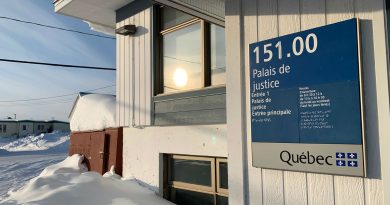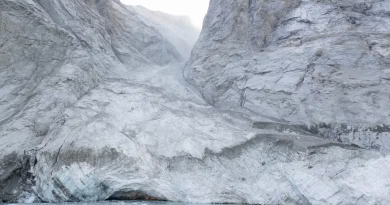Coordinated action urgently needed to face rapid polar changes, says WMO

The World Meteorological Organization will put cryosphere changes amongst its top priorities give climate change’s rapid effects on the region, the UN body said on Monday.
“The cryosphere issue is a hot topic not just for the Arctic and Antarctic, but it is a global issue,” Petteri Taalas, the WMO Secretary-General, said in a statement.
The resolution, endorsed by the World Meteorological Congress, the WMO’s decision making body, calls for more data exchange and increased funding along with coordinated observations, predictions and services.
The cryosphere refers to the regions of the world covered with frozen water, including everything from polar regions to high mountain areas.

The WMO’s State of the Global Climate in 2022 report issued in April, outlined some of the most drastic changes experienced by the cryosphere including the lowest Antarctic sea ice extent on record and continued glacier mass loss in parts of the Arctic and record glacier melt loss in Europe.
- Greenland Ice Sheet: negative total mass balance for the 26th year in a row.
- glaciers with long-term observational data: change in average thickness was around −1.3 metres between October 2021 and October 2022.
- Asia, western North America, South America and parts of the Arctic: substantial mass loss at glaciers in these regions
- Arctic sea ice: 11th lowest minimum recorded by satellite at the end of the summer melt in September
- South Pole: the extent dropped to the lowest on record at 1.92 million km2 on February 25, 2022, nearly 1 million km2 below the long-term mean recorded from 1991-2020.
Source: WMO’s State of the Global Climate in 2022 report
Cryosphere changes are urgent because they create knock-on effects for the whole planet, Sue Barrell, from Australia, and Diane Campbell, from Canada, the co-chairs of the WMO Executive Council’s Panel on Polar and High Mountains Observations, Research, and Services.
“Well over a billion people rely on water from snow and glacier melt, carried downstream by the major river basins of the world,” they said. “The irreversible changes in the global cryosphere will therefore affect adaptation strategies and access to water resources.
“Glaciers, Greenland and Antarctica ice sheet melt accounts for about 50 percent of sea level rise, which is accelerating. This is having growing and cascading impacts on small island developing states and densely populated coastal areas.”

Greenhouse gases released by melting permafrost and hazard risks from glacial lake outbursts are also increasing concerns, they say.
Closing knowledge gaps
The World Meteorological Congress resolution is calling for the urgency of global cryosphere change to be reflected in the WMO’s work
Closing knowledge gaps through increased coordination, partnerships is one of priorities outlined in the World Meteorological Congress resolution, the WMO statement said.

“Collaborative and coordinated technical mechanisms are optimized to support advancing service delivery by Members, to address relevant gaps in polar and high mountain regions, at all scales,” the WMO said.
“Partnerships and collaboration with research and external stakeholders advance knowledge sharing and amplify the existing capacity to deliver services, in a regional relevant manner.”
Write to Eilís Quinn at eilis.quinn(at)cbc.ca
Related stories from around the North:
Canada: Climate change affecting composition of forests in Yukon, Canada, study finds, CBC News
Finland: Unusually warm April weather, sunshine records in northern Finland, Eye on the Arctic
Greenland: COP27— Indigenous knowledge must be included in policy making say Inuit leaders, Eye on the Arctic
Norway: Heatwave hit Europe’s Arctic coast, The Independent Barents Observer
Russia: Russian Arctic coal is looking for way out of sanctions, The Independent Barents Observer
Sweden: High risk of wildfires in many parts of Sweden, including North, Radio Sweden



